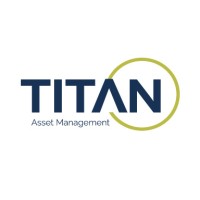This International Women’s Day we decided to do something a little different. When it comes to Environmental, Social, and Governance and sustainable investment, there is a hidden demographic that most investment decisions do not consider. This week we dive deeper into our Sustainable investment portfolio policies to see how our investment policies, screening practices, and choices impact women in communities where our investments have a real effect. Achieving milestones such as UN Sustainable Development Goals in our sector requires an intersectional feminist view, protecting women on the ground who are being directly impacted by our allocations and decisions. By looking at an investable organisation’s means of production, board and funding decisions, and internal policies we can assess whether it particularly negatively impacts women on a Social and Governance level.
So then – how can this apply to women globally? Women are particularly at risk of falling foul to Modern Slavery due to pre-existing marginalisation, poverty, and social norms.[i] The Modern Slavery document cites the business sector as needing to play a stronger and ‘more systemic’ role in removing the main key factors which drive the slavery market. 70% of the 40.3 million people in modern slavery are women and girls; and investment into companies with non-disclosed supply chains, unregulated resourcing and non-transparent human and worker rights is contributing to the international suffering of women and girls.[ii]
Our Sustainability lead, James Peel, writes below explaining how our policies for our Sustainability portfolio are designed to curb these, and ultimately how our sector has much further to go.
Investing for Women
The systemic lack of gender equality in the business and investment community has been a problem for a long time. Although a gender gap – the difference between women and men as reflected in social, political, intellectual, cultural, or economic attainments or attitudes, according to the World Economic Forum – still persists, there is good reason to believe that it will start to close meaningfully in the future. This is because there is an increasing understanding of the myriad benefits that come with efforts to improve equality. For example, the UN Principles of Responsible Investment notes that more diversity, equity and inclusion (DEI) at a company can positively affect decision-making, employee engagement, reputation amongst stakeholders, innovation and access to new markets. The organisation also warns of the risks of not prioritising DEI in the workplace.
For most investment product providers, the E in ESG has historically been the primary focus of attention. This bias is reflected in the make-up of our investable universe, which includes plenty of products that consider environmental concepts like climate change but far fewer that consider social concepts like equality or, more specifically, things like women’s health. However, that doesn’t mean that integrating social considerations into the investment process is unfeasible, especially as the quantity and quality of relevant non-financial data continues to improve.
Our sustainable investment policy demands that the strategies within our investment proposition governed by this policy achieve an MSCI ESG Rating of AA, which corresponds to a classification of Leader. This means that our exposure to and management of equality-relevant issues like labour management, human capital development and corporate governance is optimal. More, by excluding companies in violation of the UN Global Impact from our investable universe, we ensure that we have no exposure to companies flagged for breaching the 6th of the Ten Principles of the Global Impact, which states that “businesses should uphold the elimination of discrimination in respect of employment and occupation”.
With the help of one of our new data providers, Util, we are now also able to measure whether the actions of companies held across our sustainability-labelled proposition are generating any positive or negative outcomes in the real world. To do so, Util uses natural language processing to assess how companies affect the UN Sustainable Development Goals (including SDG 5, Gender Equality), which can be further broken down into thousands of other sustainability concepts.
There remains a long way to go to close the gender gap, but the reasons to prioritise doing so are clear. Helpfully, relevant non-financial data is better than it used to be, making it easier to shift capital allocation towards solving this important global challenge.

For instance, when investing in the healthcare sector in an ESG portfolio, there are an increasing number of factors to assess from a Social and Governance angle. Healthcare, particularly in the United States, suffers from a large medical research bias, heavily favouring men.[iii] Papers from medical educational institutions are revealing that the industry shows a consistent pattern for favouring male pharma, and funding pharmaceuticals for men, this study reveals that while Viagra was approved 6 months after being submitted to the FDA for approval, it took 17 years for the contraceptive pill.[iv] So then, when investing in healthcare we should be looking at the board’s budget allocation, questioning if it allocates enough to female pharma such as menopause research, questioning if the research is also conducted on female trial subjects.
The above study highlights that there is even a gender discrimination between what medical insurers will cover, most insurers will cover a prescription for Viagra but not the contraceptive pill.[v] Should one wish to invest in the healthcare insurance sector in an ESG portfolio, it’s worth considering if there is gender discrimination in the company from a granular level up to a systemic, discriminatory policy-making level.
If one is holding healthcare stock in an ESG portfolio which allocates the majority of its funding to men’s pharma, tests drugs on mixed sex subjects, and allocates healthcare policy based on systemic gender or sex challenges, then it may not really meet your ESG’s ‘Social’ criteria at all.
Women then are placed between a rock and a hard place when facing our industry, CityWire reported in 2021 that only 11.8% of portfolio managers were women – and that this was an improvement on last year.[vi] So not only are women typically absent from the investment decision-making process, but the industry is relying on the overwhelming amount of men in the decision-making position to consider the factors that affect this demographic, hidden away in the overlooked Social and Governance part of ESG.
Women are a hidden demographic in ESG, and by investing in organisations which comply with the UN Sustainable Development goals and the like, comes better reassurance that women are not disproportionately affected by our investment decisions. While we have much further to go with representation and policies to protect and empower, there is much, much more work to be done.
https://www.msci.com/our-solutions/esg-investing/esg-ratings/esg-ratings-key-issue-framework









Performance update – March 2022
In my January commentary, the aptly named ‘Bumpy Start’, I concluded by saying that recent events, and extreme market volatility, necessitated a […]